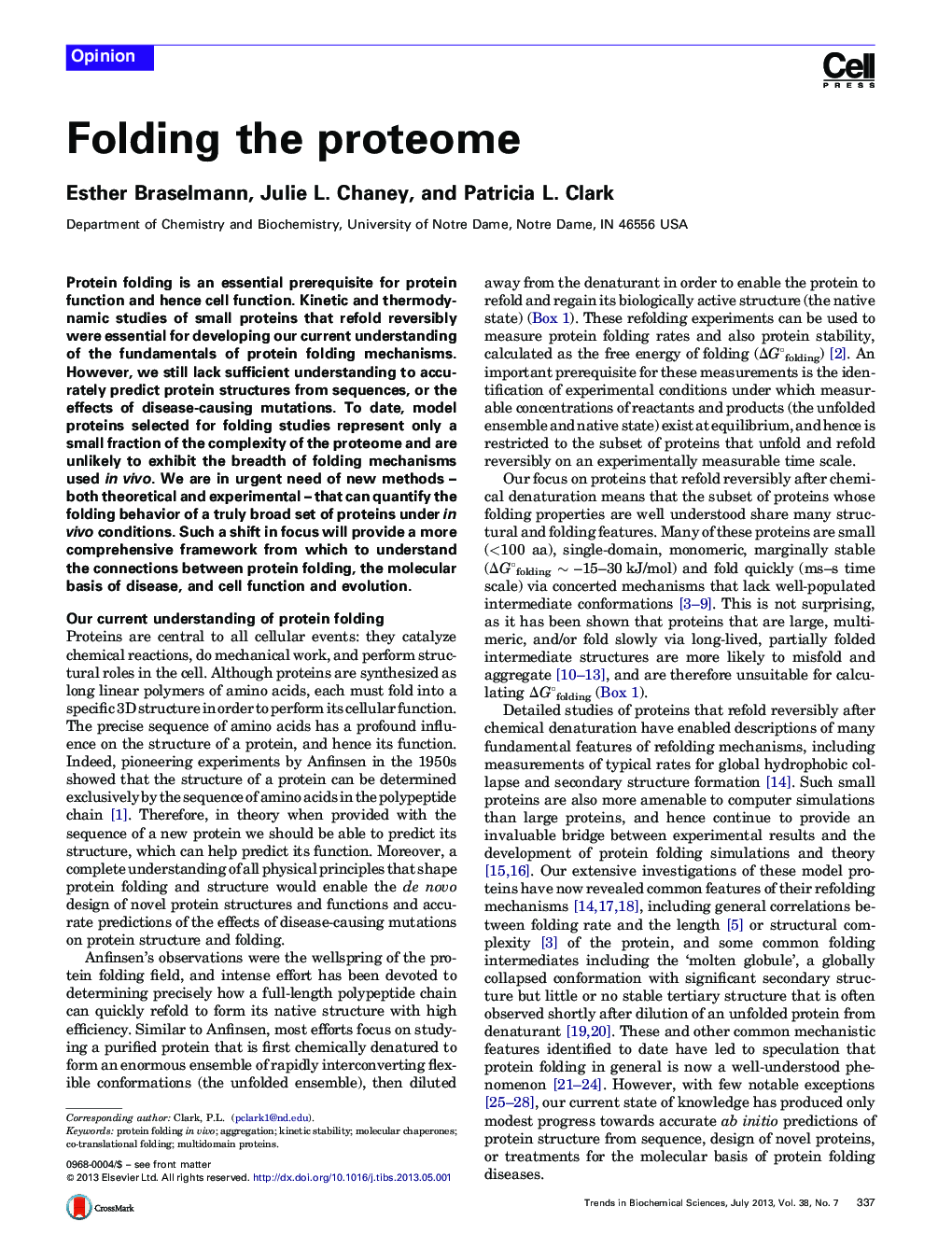| Article ID | Journal | Published Year | Pages | File Type |
|---|---|---|---|---|
| 2030883 | Trends in Biochemical Sciences | 2013 | 8 Pages |
•Proteins must fold successfully in order to function.•General conclusions are emerging for folding of small reversibly refolding proteins.•Proteomes are more complex and diverse than most proteins used as folding models.•Valuable insights can be gleaned from studying folding of unconventional model proteins.•New approaches are needed to understand the folding properties of an entire proteome.
Protein folding is an essential prerequisite for protein function and hence cell function. Kinetic and thermodynamic studies of small proteins that refold reversibly were essential for developing our current understanding of the fundamentals of protein folding mechanisms. However, we still lack sufficient understanding to accurately predict protein structures from sequences, or the effects of disease-causing mutations. To date, model proteins selected for folding studies represent only a small fraction of the complexity of the proteome and are unlikely to exhibit the breadth of folding mechanisms used in vivo. We are in urgent need of new methods – both theoretical and experimental – that can quantify the folding behavior of a truly broad set of proteins under in vivo conditions. Such a shift in focus will provide a more comprehensive framework from which to understand the connections between protein folding, the molecular basis of disease, and cell function and evolution.
